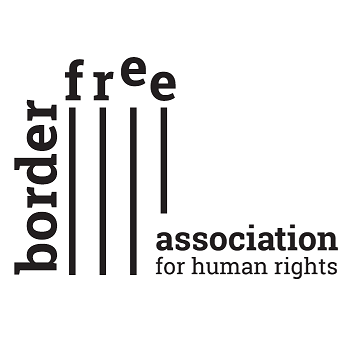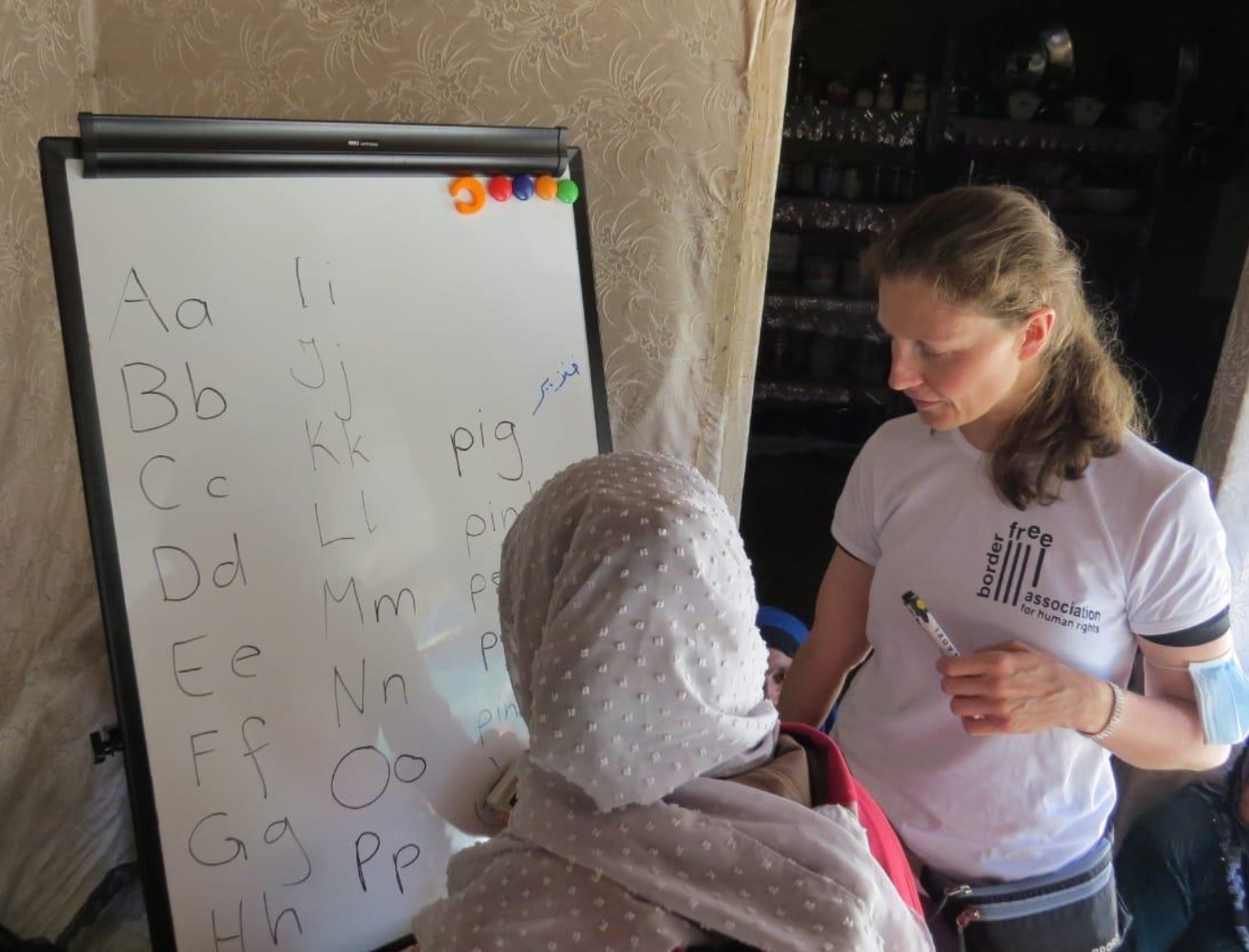You see them everywhere. Every few hundred metres. You don’t have to look for them. You can’t miss them – the white sheets with the blue inscription “UNHCR”. They are the roofs of tent settlements. The homes of people. Of forgotten people. Although the settlements are large and impossible to miss, it seems to me that the people who call the tents home have been forgotten. Forgotten by the world. By us. By you and me. People, forgotten by people.
As I write these lines, my heart tightens and I repress a tear. I was aware that these people existed. Nevertheless, I too have forgotten them. I let myself be distracted by what was happening in our day. I let myself be blinded and thought that our problems were important. And I forgot how quickly time passes. Forgetting that these people have been living in their makeshift tents for ten years.
Then I became aware of Borderfree Association. The association that calls these people by their name and gives them a face.
Vanja from Borderfree Association goes where we all like to look the other way, she meets people at eye level, is not too shy for anything and gives them back a piece of what we have taken from them.
Yes, we are responsible! We didn’t take anything from them personally, right. But we are our policy. All of us together supply the weapons. We make it happen, even if we don’t do it personally. And it is in all our hands to at least give something back to these people, who are human beings like you and me. Personally on the spot, with a donation, with prayers. I admire Vanja – because she faces up to this responsibility, does not look away and acts. And stays strong and does not give up!
Borderfree Association made it possible for me to visit these people. I went to give – and got so much back. These people have lost almost everything – but not their hospitality, not their openness, and not their warmth.
I worry about the future of these people. There are many children living there, very many. These children do not go to any official school, often cannot even write Arabic, let alone English. The mothers often can’t write either. The fathers are constantly busy feeding the family. Most of the children are born in the tent settlements. A whole generation is growing up that does not attend school. What will become of these children?
In the settlements there is usually no running water and no electricity. No showers either. Let alone medical care. And this is not temporary, but has been the case for ten years. Unimaginable for me, although I have seen it with my own eyes.
I have never met so many inquisitive children and women. I have tried to teach them a little English, and strengthen them with love and self-confidence along the way. The will to learn, their enthusiasm, their concentration – a real joy. Even the grandmothers came to class and diligently repeated after me “Hello, my name is …”. With some of them I had the feeling that they had written in a notebook with a pen for the first time. Full of pride, they gave me their work to check. My heart blossoms when I think back to the many faces and deep looks. Communication often took place through looks – as I don’t speak Arabic, communication had to take place in an alternative way – but no less intensively. Eyes can speak too!
The joy about the will of these people to learn also makes me sad at the same time. What is everything missing when a person is so happy about the visit of a “stranger from Switzerland” with whom one cannot even speak properly? What is missing when children look forward to a bit of school in the same way that children here in Switzerland look forward to presents at Christmas? There are no presents there. Fatima told me that she does not celebrate the birthdays of her five daughters – because it is not possible for her to organise five presents a year.
On my first visit to the settlement, I perceived the people as content. They try to hide the suffering. With their last dignity, they welcome guests with open arms and serve tea, coffee and food while smiling. Only after a while do you find out bit by bit what is hidden behind the facades.
There is Mama Mariam, the grandmother, whose husband is still in Syria. He has married a second wife there. Mama Mariam is alone in the camp and cries a lot when she is alone.
There is Shaha, who has a heart problem and could not give birth to her child in the normal way. It would have been too much for her heart. Vanja helped her.
There is the woman who gave birth to her child in hospital but was not allowed to take it home because she could not pay the bill.
There is the grandmother who has three holes in her upper arm, so deep to the bone. She doesn’t know whether the holes are from gunshots or from splintered parts. She just ran away! She only saw the holes later. The wounds got infected because they were not treated sterilely.
There is the boy with the deformed foot, and also the boy with the burnt foot, whose toes are sticking out in all directions. Because the burn was not treated when it happened.
There is Yiad, who is seven years old and talks about not wanting to live anymore.
And the man, with a festering abscess on his foot as big as a lemon.
A young woman also lives there, the husband also still in Syria, he too has remarried there.
These stories are all just from the few days I was there. It’s unimaginable what kind of stories you would encounter if you were there for a year!
I am incredibly grateful for the experience I had thanks to Borderfree Association. From the bottom of my heart, I will continue to support Vanja and her team as much as I can.
Borderfree Team – please never stop what you are doing! You are incredibly important in our time. Thank you for what you do!
Nicole, Borderfree Volunteer


Recent Comments